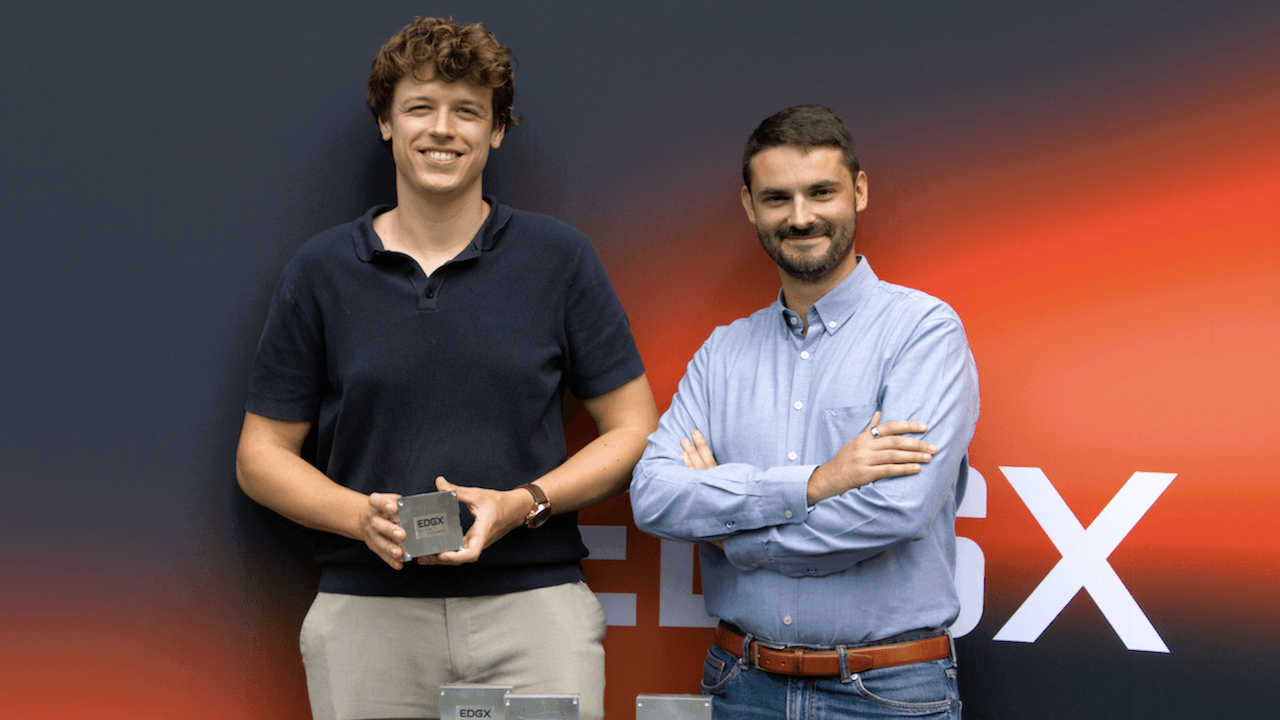Belgian spacetech EDGX has closed a €2.3 million seed round to accelerate the commercial rollout of its onboard AI computing system for satellites, EDGX Sterna. The round was co-led by imec.istart future fund and the Flanders Future Tech Fund, managed by the Flemish public investment arm PMV. EDGX has two missions scheduled for 2026.
Alongside the investment, the company has signed a €1.1 million commercial deal with a satellite operator and confirmed its first in-orbit demonstration aboard a SpaceX Falcon 9 in February 2026. The company is positioning itself at the intersection of edge computing and space infrastructure, a rapidly growing segment as satellite constellations demand faster, more autonomous data processing.
“Customers aren’t waiting for flight validation, they’re signing now,” said Nick Destrycker, founder and CEO of EDGX. “With a full launch manifest, secured commercial contracts, and our first mission set for Falcon 9, this funding will enable us to scale to meet demand for real-time intelligence from space.”
At the heart of EDGX’s offering is the Sterna AI data processing unit (DPU), built on NVIDIA Jetson Orin hardware. Designed to run complex machine learning models directly onboard satellites, Sterna shifts the industry away from traditional "store-and-forward" architectures, where satellites collect large volumes of raw data and transmit it to Earth for processing.
This architectural change offers enormous benefits. By enabling real-time data processing in orbit, Sterna drastically reduces latency and bandwidth requirements. It also opens the door to autonomous decision-making in space, which is critical for applications like earth observation, spectrum monitoring, and space-based 5G/6G networks.
The DPU runs on EDGX’s proprietary SpaceFeather software stack, which includes a radiation-hardened Linux OS, onboard health monitoring, fault detection and recovery, and a framework to deploy new capabilities post-launch.
“Going from zero to a hundred, all-in, on a space startup is ambitious,” said Wouter Benoot, EDGX co-founder and CTO. “What makes it work is the team. Each engineer brings fresh ideas, a drive to understand space, and a passion to make it real. We’re building a subsystem that powers the next generation of satellites.”
EDGX’s Sterna system targets several high-impact use cases including spectrum monitoring, earth observation and telecom networks. With thousands of satellites now in orbit and constellations becoming the backbone of both commercial and governmental operations, EDGX says that the ability to compute in space is quickly becoming essential.
“The space industry is hitting a fundamental bottleneck; we're generating massive amounts of data in orbit but still using outdated 'store and forward' architectures,” said Kris Vandenberk, managing partner at imec.istart future fund. “EDGX is solving this by bringing AI-powered edge computing directly into space.”
As geopolitical and technological competition in space intensifies, Europe is increasingly investing in homegrown solutions. EDGX’s funding round comes amid broader EU efforts to strengthen the bloc’s capabilities in critical space infrastructure.
“This round of financing will enable us to support EDGX’s strong team in bringing promising Flemish technology to market and developing it further,” said Roald Borré, Head of Venture Capital at PMV. “EDGX is one of the few European players to offer a product that is high-performance, accessible and robust, giving it unique advantages in the fast-growing market for edge computing in space.”



Would you like to write the first comment?
Login to post comments